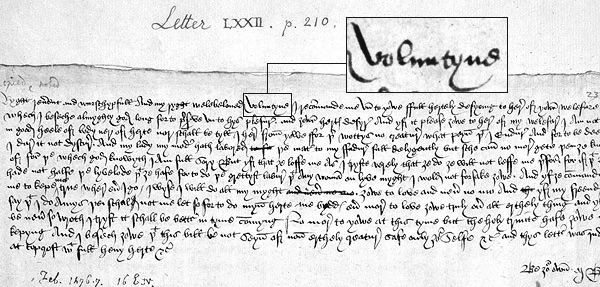


A lasting Legacy of 500-year-old Love.
Love it or hate it, even the most hardened anti-Romeo will be hard pressed to avoid Valentine's Day this year.
Here is a letter which is on show at the British Library. It is a letter, written from a young woman to her love, and is the first mention of the word Valentine in the English language.
The letter shows they were no different to us. They had the same loves, desires and financial problems. In 1477 Margery wrote a letter to her John pleading with him not to give her up, despite her parents' refusal to increase her dowry.
Addressing her 'ryght welebeloued Voluntyne' (right well-beloved Valentine), she promised to be a good wife, adding, 'Yf that ye loffe me as Itryste verely that ye do ye will not leffe me" ' (If you love me, I trust.. you will not leave me).
She promises her undying love, 'Myne herte me bydds ever more to love yowe truly' (My heart me bids ever more to love you truly), and speaks of her ailing body and heart over her fiance's continuing silence.
However, modern-day lovers be reassured, like any self-respecting fairytale romance the heart did rule the head and, despite her father's stubbornness over her dowry, Margery did marry her knight and the couple had a son, William, in 1479. Margery died in 1495, John in 1503.
While her letter is also written on paper, there is one key difference. She didn't write it herself we have learned. It would have been dictated to a man who would have written it for her. However, says Julian Harrison, curator, 'The fact that she isn't writing the letter doesn't mean she can't write, it means she can afford someone to write for her. People have assumed that people in the past were illiterate, but actually levels of literacy may have been higher than we think.'
A marvellous tale with which to celebrate Valentine's Day.